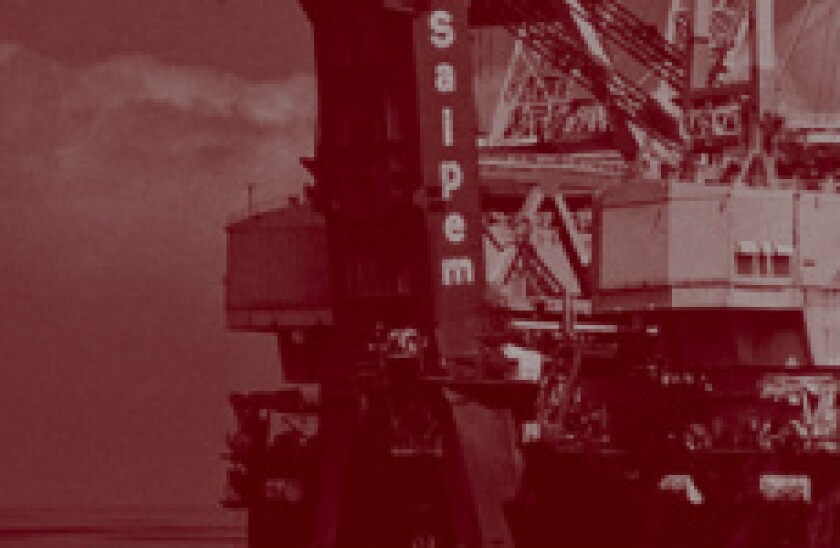When commodity prices fall, commodities firms raise money to survive. When they start struggling to raise money is when things go truly wrong.
Last week, 11 banks, among them some of Europe’s most astute equity capital markets operators, were left hanging on to €427m of stock in Italian oil and gas engineering firm Saipem, having failed to sell all of the €3.5bn rights issue they had underwritten.
The underwriters, which included heavyweights Goldman Sachs, JP Morgan, Citigroup and Deutsche Bank, thought the discount on the new shares being sold would be deep enough to attract investor demand. They misfired badly and are left with the uncomfortable task of selling down their stakes in the aftermarket. At current share price levels they would make a loss.
Worse still, Saipem is now worth no more than the cash it just raised. Its absurdly low valuation, at €3.5bn, suggests it would be valueless without the new money injection.
And yet its market cap stood above €1.5bn before the deal’s launch — a lesson in value destruction if ever there was one.
For banks and investors, this is a wake-up call.
Banks must now consider that rights issues, an asset class they had long seen as risk-light and highly profitable, have become hazardous, especially in the resources sector.
And investors in other commodities firms, while no doubt supportive of businesses’ measures to bulk up their capital positions, will see any rights issue announcement as foreshadowing a period of huge uncertainty, and a possible loss of value.
But for commodities firms having to deal with an oil price around $30 a barrel, natural gas at $1.8 per million British thermal units and iron ore around $50 a tonne — their lowest levels in years — giving up on capital raises is hardly an option.
ArcelorMittal, the steel and mining business, announced a $3bn rights issue earlier this month. Goldman Sachs is also an underwriter on that deal. And Nyrstar, the world’s largest producer of zinc, this month launched a €274m rights issue of its own.
Other commodities firms will no doubt follow suit.
For them, things could be worse than for Saipem. After all, Saipem got the €3.5bn it needed, as its deal was fully underwritten. But banks and investors are unlikely to be burned twice in the same way.
Because banks will be keenly aware of potential risks in the wake of the Saipem fiasco, they may now choose to back only the best deals from the best businesses, or at the very least reprice the risk of deals for weaker commodities firms.
That could curtail the sector’s access to money just when it needs it the most.

